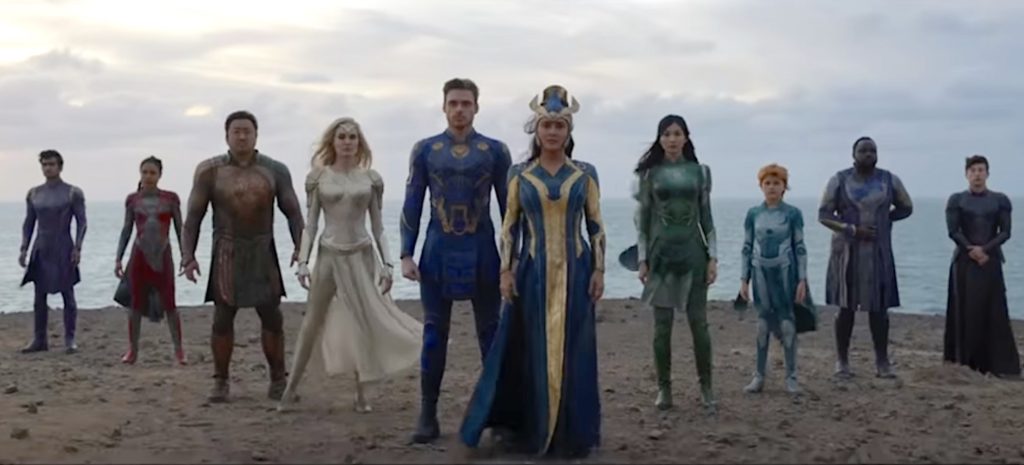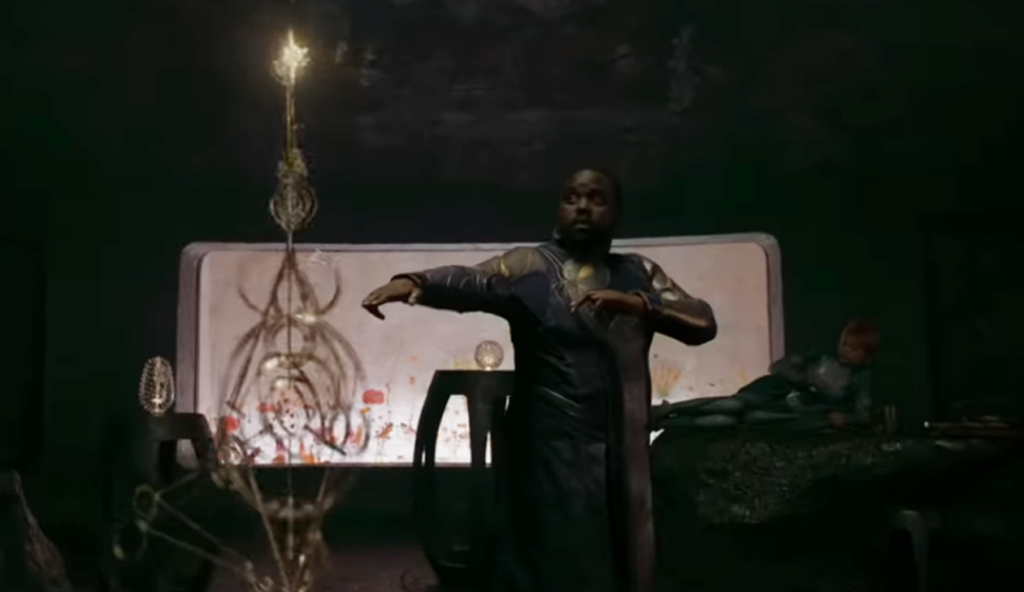
After being pushed out of 2020 thanks to the Covid-19 pandemic, Marvel Cinematic Universe (MCU) fans got a glimpse of its cosmic-meets-mythology ensemble piece “Eternals” Monday with the release of the film's first teaser trailer.
The trailer gives fans their first look at the star-studded cast in their heroic best, including Angelina Jolie, Salma Hayek and Kumail Nanjiani. But “Eternals” is significant within the MCU's cultural landscape as it will be the first film to feature an out LGBTQ superhero in the team's technological expert and master inventor Phastos, portrayed by “Atlanta” and “Godzilla vs. Kong” star Brian Tyree Henry. The teaser gives audiences their first look at Phastos in action as he manipulates cosmic energy.
The film will also reportedly feature Lebanese actor Haaz Sleiman as Phastos' husband, setting up the first explicit representation of an LGBTQ romantic relationship in the 20-plus film franchise's history. The decision follows an increased focus on making the MCU more diverse in recent years, most notably in “Black Panther”, “Captain Marvel” and the forthcoming “Shang-Chi and the Legend of the Ten Rings”.
Marvel production chief Victoria Alonso said “the world is ready” for a gay superhero when the first rumblings of the addition of an out LGBTQ hero first started in 2019. “Why would we only want to be recognized by only one type of person? Our audience is global, is diverse, is inclusive. If we don't do it that way for them, we will fail,” she added. To that end, “Eternals” will also feature the MCU's first deaf superhero, the super-speedy Makkari, portrayed by deaf actress Lauren Ridloff of “The Walking Dead” fame.
Henry's portrayal of the openly gay Phastos represents more than just a historic first in the MCU's makeup. Having a major character, be it part of an ensemble team, depict LGBTQ identities on-screen is a far cry from the much less explicit or fleeting depictions of LGBTQ identities throughout the copious franchises under the banner of Disney, Marvel's parent company. The practice has led to some calling out Disney for trying to earn brownie points with the vocal LGBTQ faction of its fanbase while keeping its projects easily manipulatable for markets less accepting of LGBTQ identities, effectively compartmentalizing any diversity initiative it undertakes.
The media giant has faced criticism for boasting about LGBTQ inclusion in its properties for years only to have those moments amount to implications at best, (“Cruella”, “Beauty and the Beast”) or tiny moments that are easily edited out for markets that don't approve of showcasing non-heteronormative images on the big screen (“The Rise of Skywalker”).

The MCU itself is already guilty of this underwhelming trend. Marvel touted its first out LGBTQ character prior to the release of “Avengers: Endgame” in 2019 only to have the hype amount to one line of dialog from an unnamed character talking about losing his husband after Thanos' Snap. Phastos feels much more substantial when compared to that moment, and the promise of more LGBTQ representation in the forthcoming “Thor: Love and Thunder” adds to that confidence, but there is a clear track record with Disney that still inspires doubt and cynicism in some fans' minds.
“Eternals” brings yet another Marvel deep-cut franchise (see “Guardians of the Galaxy”, “Shang-Chi”) to life within its absurdly popular film series. Created by comics legend Jack Kirby, “Eternals” follows the eponymous team, a group of superpowered beings created by the Celestials to defend Earth and battle their fellow Celestial-created opposition, the Deviants.
Though the trailer bears no mention of the Deviants by name, the film will see the Eternals come together to defend Earth from a force great enough for them to break their commitment to helping humanity develop without direct involvement in the chaos mankind fosters within itself.
Written and directed by Oscar-winning “Nomadland” director Chloe Zhao, “Eternals” hits theaters on November 5, 2021.




